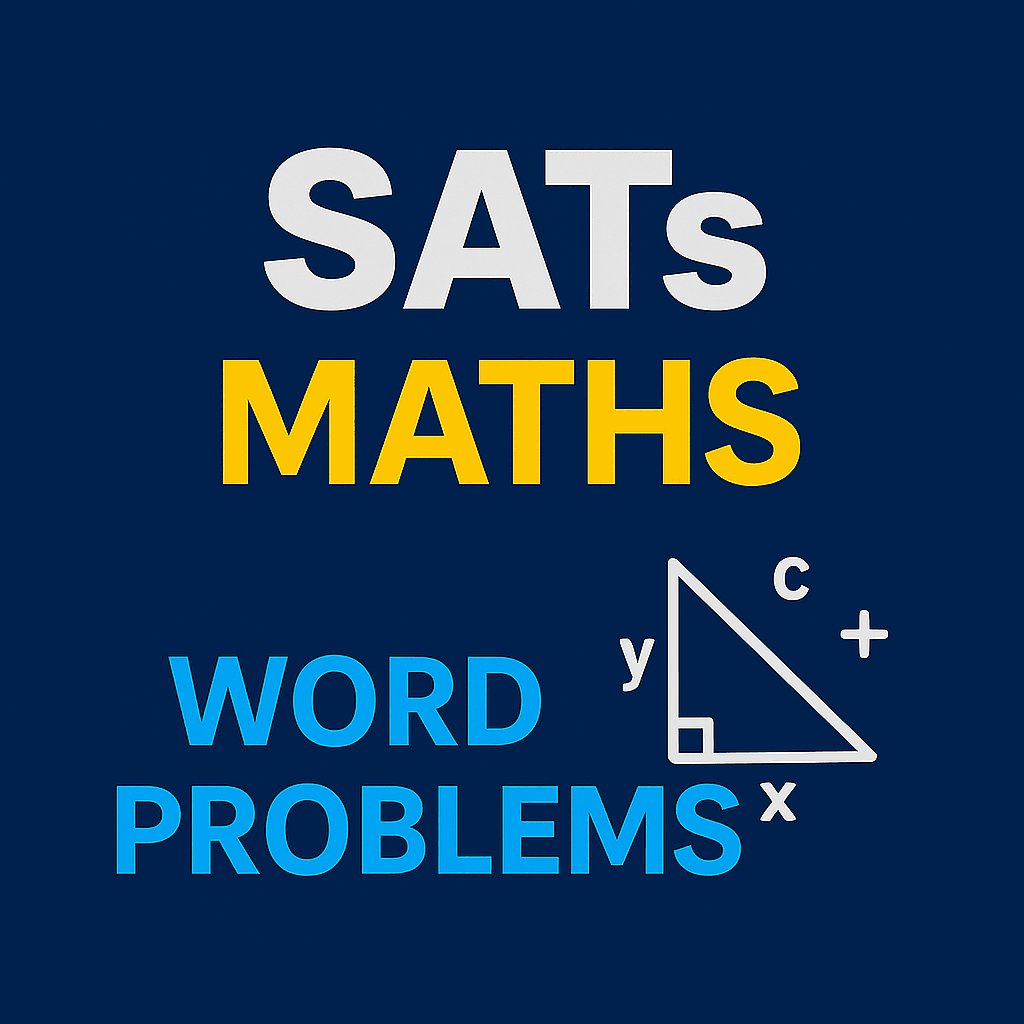Table of Contents
ToggleMastering SAT Word Problems: Step-by-Step Strategies
Introduction
Word problems are a significant part of the SAT Math section, testing your ability to translate real-world scenarios into equations and solve for unknowns. For many students, these questions can feel tricky, but with a systematic approach, you can solve them accurately and efficiently.
This guide will help you:
- Break down word problems step by step.
- Understand key SAT problem-solving strategies.
- Practice with real SAT-style examples.
Understanding the Structure of Word Problems
Word problems often involve:
- Descriptions of relationships between variables.
- Real-world scenarios (distance, time, rate, percentages).
- Hidden equations embedded in the text.
Example:
“John drove 150 miles in 3 hours. If he continued at the same speed, how far would he drive in 5 hours?”
Step-by-Step Approach to Solving Word Problems
Step 1: Read the Problem Carefully
- Identify what is being asked.
- Underline important numbers, relationships, and keywords.
Step 2: Translate Words into Equations
- Use mathematical symbols to represent relationships:
- “Sum” →

- “Difference” →

- “Product” →

- “Quotient” →

- “Sum” →
Step 3: Solve and Check Your Answer
- Solve for the unknown variable.
- Plug your answer back into the problem to check its accuracy.
Common Types of SAT Word Problems
Rate, Time, and Distance
- Use the formula:
 .
.
Example:
A train travels at 60 miles per hour. How long will it take to travel 180 miles?
Solution:
![Rendered by QuickLaTeX.com \[ \text{Time} = \frac{\text{Distance}}{\text{Rate}} = \frac{180}{60} = 3 \, \text{hours}. \]](data:image/svg+xml;base64,PHN2ZyB4bWxucz0iaHR0cDovL3d3dy53My5vcmcvMjAwMC9zdmciIHdpZHRoPSIyNzEiIGhlaWdodD0iMzgiIHZpZXdCb3g9IjAgMCAyNzEgMzgiPjxyZWN0IHdpZHRoPSIxMDAlIiBoZWlnaHQ9IjEwMCUiIHN0eWxlPSJmaWxsOiNjZmQ0ZGI7ZmlsbC1vcGFjaXR5OiAwLjE7Ii8+PC9zdmc+)
- Use the formula:
Percentages
- Convert percentages into decimals to simplify calculations.
Example:
A jacket costs $120, and it’s on sale for 25% off. What is the sale price?
Solution:
![Rendered by QuickLaTeX.com \[ \text{Discount} = 0.25 \times 120 = 30 \quad \text{Sale Price} = 120 - 30 = 90. \]](data:image/svg+xml;base64,PHN2ZyB4bWxucz0iaHR0cDovL3d3dy53My5vcmcvMjAwMC9zdmciIHdpZHRoPSI0NDMiIGhlaWdodD0iMTQiIHZpZXdCb3g9IjAgMCA0NDMgMTQiPjxyZWN0IHdpZHRoPSIxMDAlIiBoZWlnaHQ9IjEwMCUiIHN0eWxlPSJmaWxsOiNjZmQ0ZGI7ZmlsbC1vcGFjaXR5OiAwLjE7Ii8+PC9zdmc+)
Systems of Equations
Word problems may involve multiple unknowns that require you to set up two equations.
Example:
Sam bought 3 apples and 2 oranges for $12. Anna bought 2 apples and 1 orange for $8. What is the cost of an apple and an orange?
Practice Question
Question:
A factory produces 150 widgets in 5 hours. If the factory produces widgets at the same rate, how many widgets will it produce in 8 hours?
Solution:
- Find the rate:
 .
. - Multiply by time:
 .
.
Answer: 240 widgets.
- Find the rate:
Tips for Solving Word Problems Quickly
- Eliminate Unnecessary Information: Focus only on what matters.
- Draw Diagrams: Sketch problems involving geometry or distance.
- Look for Patterns: Many SAT word problems follow similar structures.
Summary
SAT word problems test your ability to think logically and translate real-world scenarios into equations. By following a step-by-step approach and practising consistently, you can solve these questions confidently and improve your SAT Math score.
📅 Book Your Free SAT Math Consultation Today!
Skinat Tuition | Excellence in SAT, GCSE, and A-Level Tutoring Worldwide.


